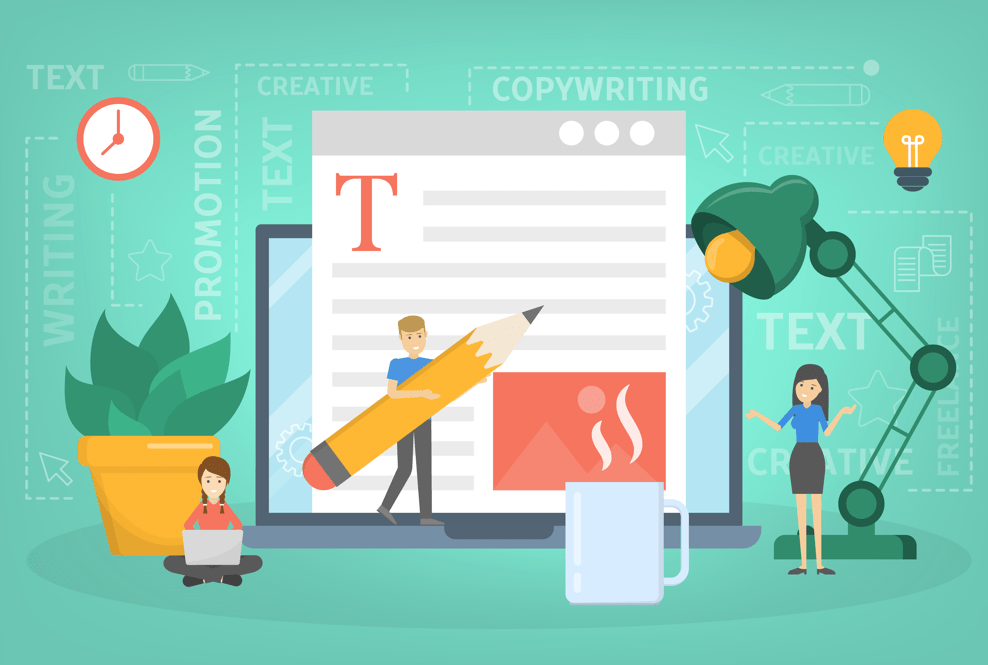If you’re fascinated by the world of words and have a keen eye for detail, becoming an editor might be your calling. Editing is not just about grammar and punctuation; it plays a pivotal role in shaping stories, articles, and books to keep readers engaged.
This guide offers step-by-step information on how to turn your love for language into a thriving editing career. Ready to explore? Let’s dive in!
Key Takeaways
- Types of editors include developmental, substantive, line, and proofreaders, each with specific roles in shaping written content.
- Steps to becoming an editor involve choosing a specialization, earning a degree or editing certificate, gaining practical experience through internships and freelancing, and applying for entry-level positions.
- Tips for success as an editor include continuously improving editing skills, staying updated on industry trends and technologies, building a strong network of professional contacts.
Types of Editors and Their Roles

There are different types of editors with specific roles, such as the developmental editor who focuses on the overall structure and content of a piece, the substantive editor who works on improving clarity and organization, the line editor who polishes sentences and improves flow, and the proofreader who catches grammar and spelling errors.
Developmental Editor
A Developmental Editor plays a critical role in the writing process, focusing on the big picture components of the work. They delve into structural elements, ensuring narratives are cohesive and engage readers effectively.
This type of editor examines plot development, character building, pacing, tone setting, and other essential aspects that create compelling content. Their aim is to guide authors towards refining their messages whilst maintaining originality and authenticity.
In doing so, they help writers create quality books or articles that resonate with intended audiences. The complex nature of this editorial role often requires high-level skills like creative thinking and problem-solving abilities along with an excellent command over language use.
Substantive Editor
A Substantive Editor plays a crucial role in the editing process, focusing on the overall structure, content, and organization of a piece of writing. They work closely with authors to ensure that the message is clear and coherent.
A good Substantive Editor has an excellent understanding of storytelling techniques and knows how to strengthen the narrative flow. They also possess strong analytical skills to identify inconsistencies or gaps in the content and offer suggestions for improvement.
With their attention to detail and expertise in language usage, a Substantive Editor brings out the best in a manuscript while maintaining its integrity.
In order to become a successful Substantive Editor, it is essential to have excellent communication skills as well as a keen eye for detail. They must be able to effectively communicate feedback and suggestions to authors while respecting their creative vision.
Additionally, staying updated on industry trends and technologies can help enhance editorial skills and keep pace with evolving writing styles. Building connections within the publishing industry can also open doors for career opportunities as a Substantive Editor.
Line Editor
As a line editor, your main responsibility is to focus on the details of the written content. You will be tasked with improving clarity, readability, and overall flow of the text. This includes checking for grammar errors, correcting punctuation mistakes, and refining sentence structure.
A good line editor has strong attention to detail and excellent knowledge of English language conventions. They should also have expertise in using editing software and tools to ensure consistency and accuracy in their work.
With a career as a line editor, you can contribute to the quality of various written materials such as books, magazines, websites, or even scripts for videos.
Proofreader
As a proofreader, your role is to carefully review written content and correct any errors in grammar, spelling, punctuation, and formatting. You play a critical role in ensuring that the final product is polished and error-free.
To excel in this position, it’s important to have a keen eye for detail and excellent language skills. As you proofread various materials such as articles, essays, or books, you need to actively identify mistakes while maintaining the overall meaning of the text.
Utilizing editing software can help streamline your process. With dedication and practice, you can become an invaluable asset in the publishing industry or any organization that values quality written work.
Steps to Becoming an Editor
Choose your type and style of editing, earn a degree or editing certificate, gain experience through internships and freelancing, apply for entry-level positions in publishing and editorial roles.
Want to know more about the steps to becoming an editor? Read on!
Choose your type and style of editing
To become a successful editor, it’s important to choose the type and style of editing that best suits your skills and interests. Whether you prefer developmental editing, line editing, or proofreading, each type plays a unique role in the publishing industry.
Take time to explore different types of editing and consider which one aligns with your strengths and passions. This will allow you to specialize and develop expertise in a specific area, making you more valuable as an editor.
Keep in mind that being flexible and open to learning new styles of editing can also broaden your opportunities within the field.
When selecting your preferred type of editing, consider factors such as the level of detail involved, the amount of collaboration with authors or clients required, and whether you enjoy working on content development or focusing on grammar and punctuation.
Earn a degree or editing certificate

To become a successful editor, one of the crucial steps is to earn a degree or an editing certificate. This formal education will provide you with the necessary knowledge and skills in grammar, punctuation, style guides, and editing techniques.
Pursuing a degree in English, journalism, or a related field can give you a solid foundation for your editing career. Alternatively, you can opt for specialized programs that offer editing certificates.
These programs focus specifically on the technical aspects of editing and can be completed more quickly than traditional degrees. Having an academic qualification in editing not only enhances your credibility but also helps you stand out among aspiring editors in this competitive industry.
Gain experience through internships and freelancing
Internships and freelancing are excellent ways for beginners to gain practical experience in the editing field. By working as an intern or freelancer, you have the opportunity to apply your editing skills in real-world scenarios and build a strong portfolio of work.
Internships with publishing companies, magazines, or online platforms can provide valuable insights into the industry and allow you to learn from experienced editors. Freelancing, on the other hand, gives you the freedom to choose projects that align with your interests and develop your expertise in specific areas of editing.
Whether it’s proofreading manuscripts or copyediting blog posts, these experiences will enhance your editorial skills while also boosting your professional credibility within the industry.
Apply for entry-level publishing and editorial positions
To kickstart your career as an editor, it’s essential to apply for entry-level publishing and editorial positions. These roles will provide you with valuable hands-on experience and a chance to learn from seasoned professionals in the industry.
Look for job openings at publishing companies, magazines, or digital platforms where you can put your editing skills to use. Don’t be afraid to start at the bottom; this is where you’ll gain practical experience and build a strong foundation for your future editing career.
Keep an eye out for opportunities that align with your interests and goals, and be ready to showcase your passion for writing and editing during interviews.
Network with clients and publishing professionals
Building a strong network is essential for aspiring editors. By connecting with clients and publishing professionals, you can expand your opportunities and enhance your career prospects in the editing industry.
Attend conferences, workshops, and industry events to meet fellow editors and professionals in the field. Utilize online platforms to join editing communities, participate in forums, and engage with potential clients.
Cultivating relationships with authors, publishers, agents, and other professionals can lead to valuable collaborations and job opportunities. Remember that networking is not just about self-promotion; it’s also about building meaningful connections and supporting others in the publishing community.
Tips for Success as an Editor
Continuously improve your editing skills, stay updated on industry trends, build a strong network, maintain professionalism, and seek feedback for success as an editor. Read more to become a successful editor in the publishing industry.
Continuously improve your writing and editing skills
To become a successful editor, it is crucial to continuously enhance your writing and editing skills. This means staying up-to-date with grammar rules, style guides, and industry standards.
Practice regularly by editing different types of content, such as articles, blogs, or even your own writing. Look for opportunities to learn new techniques and strategies through workshops or online courses.
Engage in self-reflection and seek feedback from mentors or fellow editors to identify areas for improvement. By continually honing your skills, you can provide high-quality editing services that clients will value.
Stay updated on industry trends and technologies
To excel as an editor, it is vital to stay updated on industry trends and technologies. Keep a finger on the pulse of the publishing world by regularly reading industry publications, attending conferences, and participating in professional development courses.
Stay informed about emerging editing tools and software that can streamline your work process and improve efficiency. By staying up-to-date with industry trends and technologies, you’ll be well-equipped to meet the evolving needs of clients and stay ahead in your editing career.
Build a strong network of professional contacts

Networking is a crucial aspect of building a successful career as an editor. By establishing and nurturing professional relationships, you can open doors to new opportunities and gain valuable insights from industry experts.
Attend networking events, join professional organizations, and connect with colleagues through social media platforms like LinkedIn. Take the initiative to reach out to others in the field and be proactive in building connections that can enhance your career prospects as an editor.
Having a strong network of professional contacts allows you to stay updated on industry trends, collaborate on projects, and receive recommendations for job openings or freelance assignments.
It also provides a support system where you can seek advice, share experiences, and learn from others’ expertise. Cultivate these relationships by offering assistance when needed, being reliable and trustworthy, and maintaining regular communication with your network.
Maintain a professional and ethical approach to editing
Maintain professionalism and ethical standards in your editing work. Be attentive to the needs and goals of the author or client, following their guidelines and respecting their creative vision.
Maintain confidentiality when working with sensitive materials. Avoid bias or favoritism in your editing decisions, treating all authors equally. Take responsibility for your mistakes and be open to feedback from others.
Upholding professional and ethical practices will help build trust with clients and ensure a successful career as an editor.
Seek feedback and learn from constructive criticism
As an aspiring editor, seeking feedback and learning from constructive criticism is essential for your growth and improvement. Actively seeking feedback allows you to understand how others perceive your work and identify areas where you can enhance your editing skills.
Embrace feedback as an opportunity to learn and grow rather than taking it personally or getting defensive. Take the time to carefully analyze the feedback provided and use it as a guide for making necessary changes to your editing approach.
By being open to constructive criticism, you will continue to refine your skills, develop a strong sense of self-awareness, and ultimately become a more successful editor in the industry.
Conclusion
In conclusion, becoming an editor requires a combination of education, experience, and networking. By choosing the type and style of editing that aligns with your interests and skills, earning a degree or certificate in editing, gaining practical experience through internships and freelancing, and actively building a network of professional contacts, you can set yourself up for success in this rewarding career.
Continuously improving your writing and editing skills while staying updated on industry trends will also help you thrive as an editor. So start honing your editorial skills today to embark on a fulfilling writing-related career.
FAQs
What are the steps to becoming an editor?
To become a good editor, you first need to get a Bachelor’s degree or certificate related to writing, then choose the type of editor you want to be, like content editing or literary editing.
How important is training for becoming an editor?
Training is crucial in learning proofreading techniques and copy-editing skills which are vital for any writing-related career.
Does one need experience before they start their own publishing company?
Yes, having experience as an editor provides insight into running a successful publishing company.
Can I learn from other editors?
Absolutely! Observing your favorite editors can provide valuable tips and guidance towards shaping your own journalism career.




